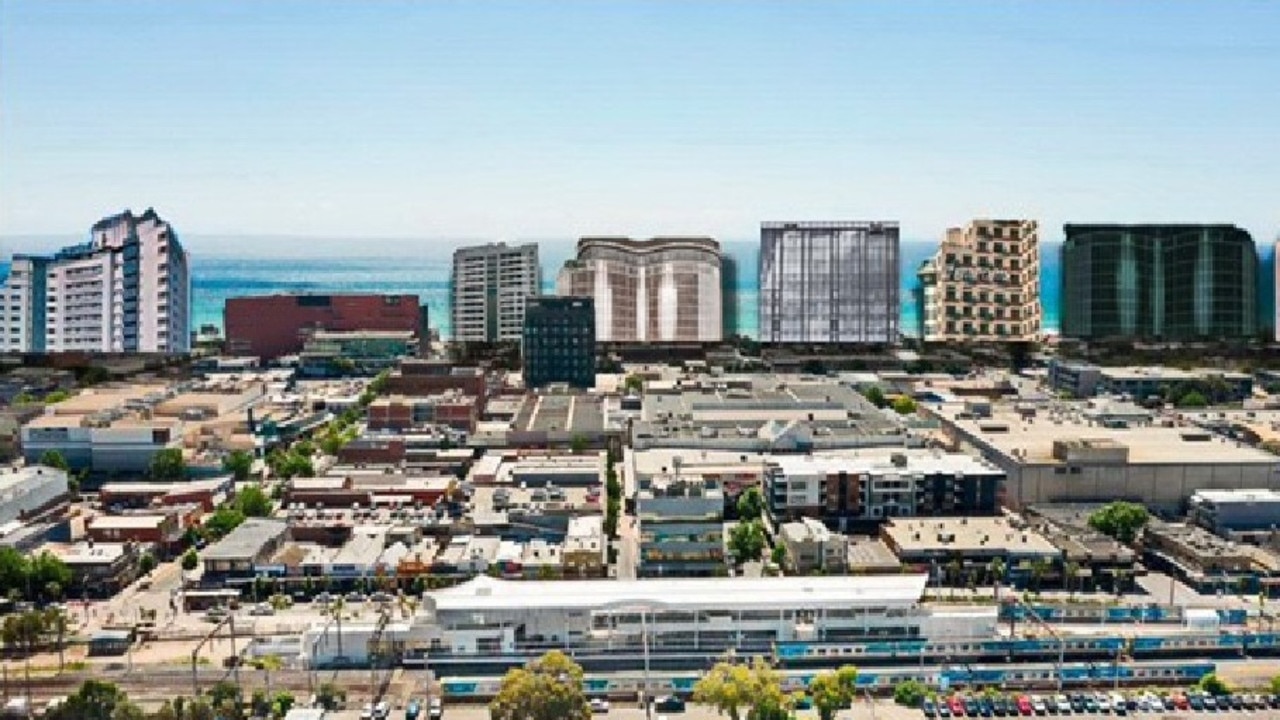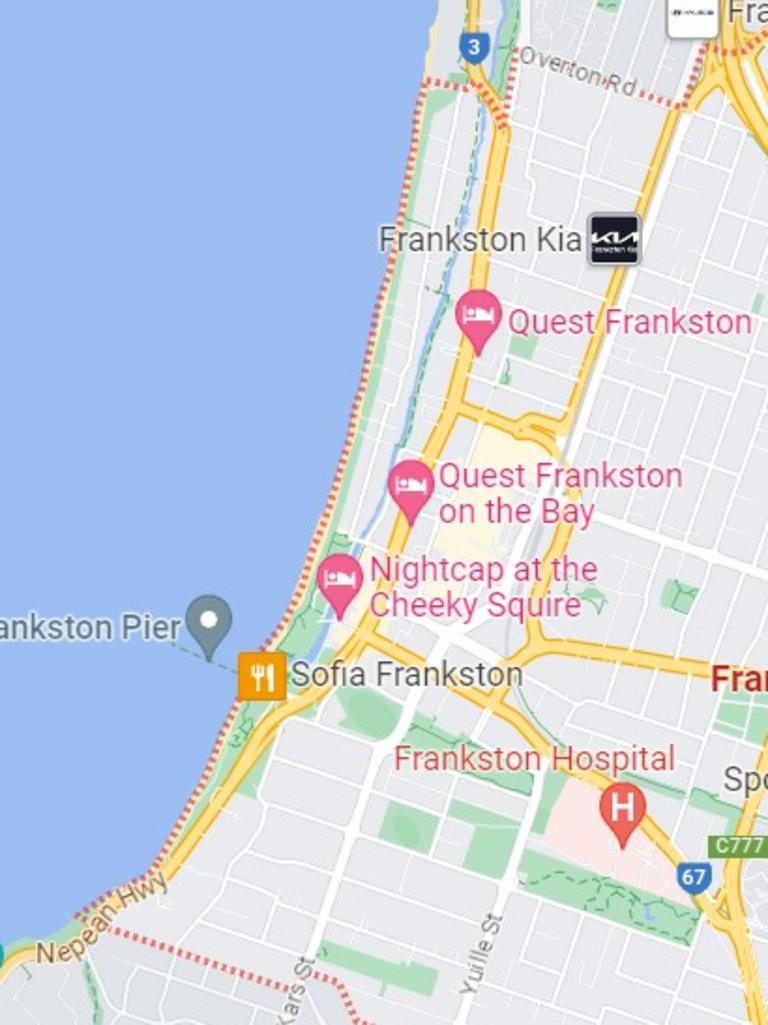Huge dispute over Melbourne bayside suburb’s ‘great wall’
Tensions are high in one of Melbourne’s bayside suburbs as one group fears turning into Surfers Paradise and another pleads for new development.
Tensions are high in one of Melbourne’s bayside suburbs with a dispute over high rise developments along the beach being dubbed the “Great Wall of Frankston”.
“We can’t do a Surfers [Paradise] here,” resident of five years, Tim Costello, told news.com.au.
“We want to protect the waterfront precinct. Frankston is the Melbourne riviera.”
Mr Costello is a member of the community group Stop the Great Wall of Frankston Alliance, which has a petition with 5100 signatures.
They believe allowing high rises along Nepean Highway in Frankston would see “millionaires with penthouse views” overshadow the bay.
But another community group, Advance Frankston, says the wall of high rises is the “greatest myth that’s been perpetrated”.

Gary Ebbott, who has lived in Frankston for 30 years, started the opposing group after Planning Minister Sonya Kilkenny applied an interim design and development overlay to the area limiting buildings to a maximum height of three storeys earlier this month.
It happened about an hour into the first day of a VCAT hearing for a 16-storey building.
The interim overlay expires on October 27.
“If there was no other point I could get across it’s [the development] is not on the beach. Shadowing doesn’t happen. It’s impossible. It’s too far from the beach to happen,” Mr Ebbott argued.
The long-time resident, who is downsizing and moving into a nearby apartment after selling his house, said he didn’t want to see 30 storey complexes going up in Frankston but thought half of that was reasonable.
“It’s creating housing options that Frankston does not have,” he said.


Mr Costello says he is not completely against high rises in Frankston but doesn’t want to see them along the water, and would like to see a social housing policy.
Frankston City Council is pro-development and is awaiting approval from Minister Kilkenny on its Frankston Metropolitan Activity Centre (FMAC) Structure Plan.
Mayor Nathan Conroy told news.com.au under the plan the preferred height for buildings in the disputed area was 12 storeys.
He explained this meant they would still accept development applications for lower or higher buildings but it would need to be justified, including factors like whether the building overshadows the bay or is set back enough, or whether there is social or affordable housing involved.
“We want good appropriate development that will fill our city with people,” he said, adding that with more people there is more vibrancy, atmosphere and its good for local businesses, which have been calling out for more foot traffic.

Mr Conroy said the plan helped developers and investors know what Frankston wanted, and “removes red tape”.
“We’re in a national housing crisis,” he added.
The council’s plan is now being considered by Ms Kilkenny.
“The Minister for Planning has applied a planning control to one part of the Frankston activity centre which currently does not have any height or design controls in place,” a Victorian government spokesman told news.com.au on Friday.
“The interim controls will protect this part of Frankston while we further consider the council’s request.”
That interim overlay covers land that is the area bound by Nepean Highway, Kananook Creek Boulevard, Beach Street and Wells Street, Frankston.
Local MP David Limbrick of the Liberal Democratic Party said the proposal for high rises was what the community needed.
“This proposal means hundreds of people would move to Frankston and breathe life into the area,” he said
“Many of the people who want to buy apartments are empty nesters from south east Melbourne who would put their houses up for sale. Others are people who want to get into the property market.
“This can only be a good thing for people wanting somewhere to live, and for Frankston.
“The moral argument for stopping the development needs to be exceedingly high, but I am yet to hear a good reason from the Minister for Planning.
“We are in the middle of a housing crisis. People on average incomes cannot get into the housing market, and the Minister for Planning needs to ensure this development can go ahead immediately.”






